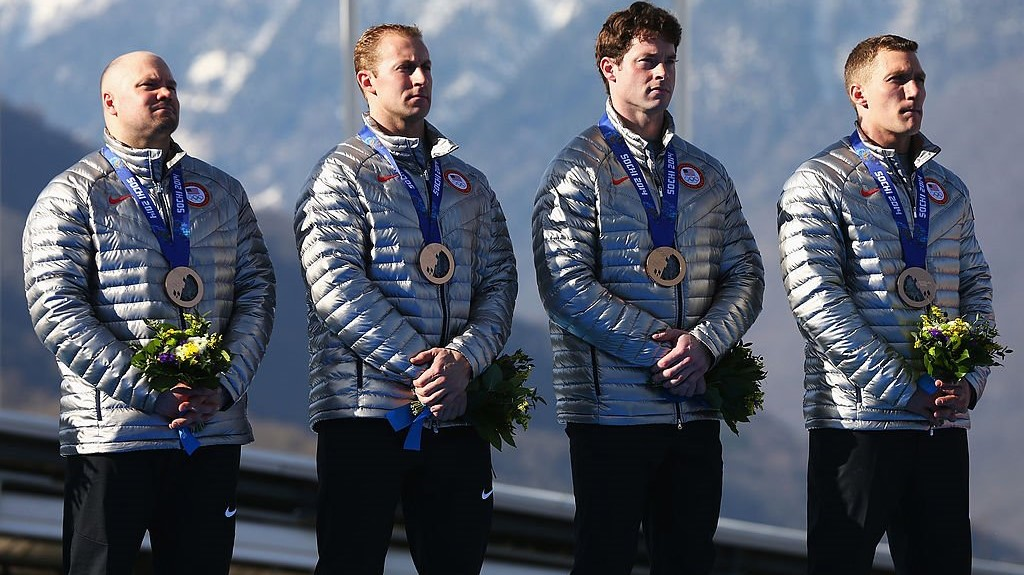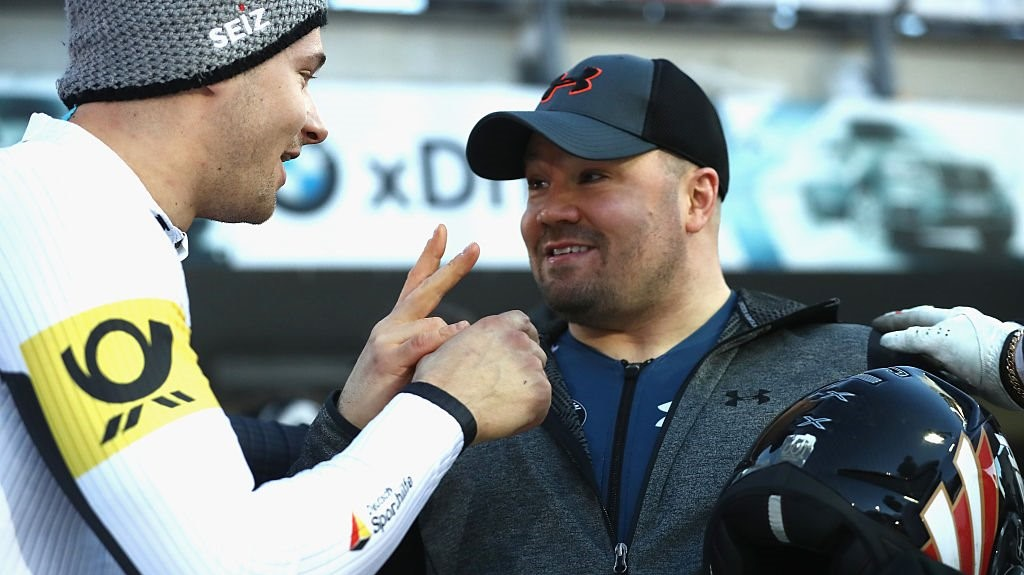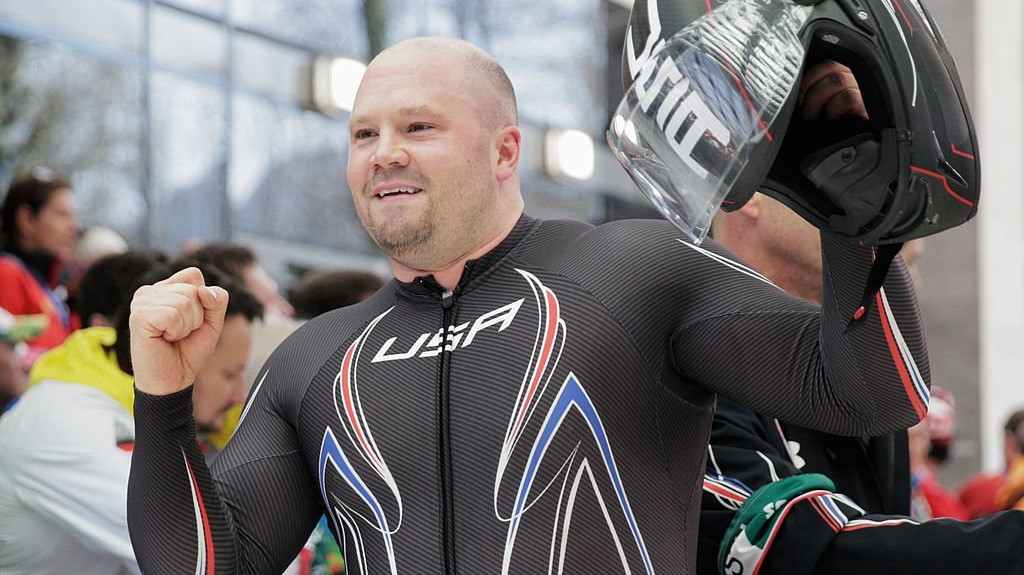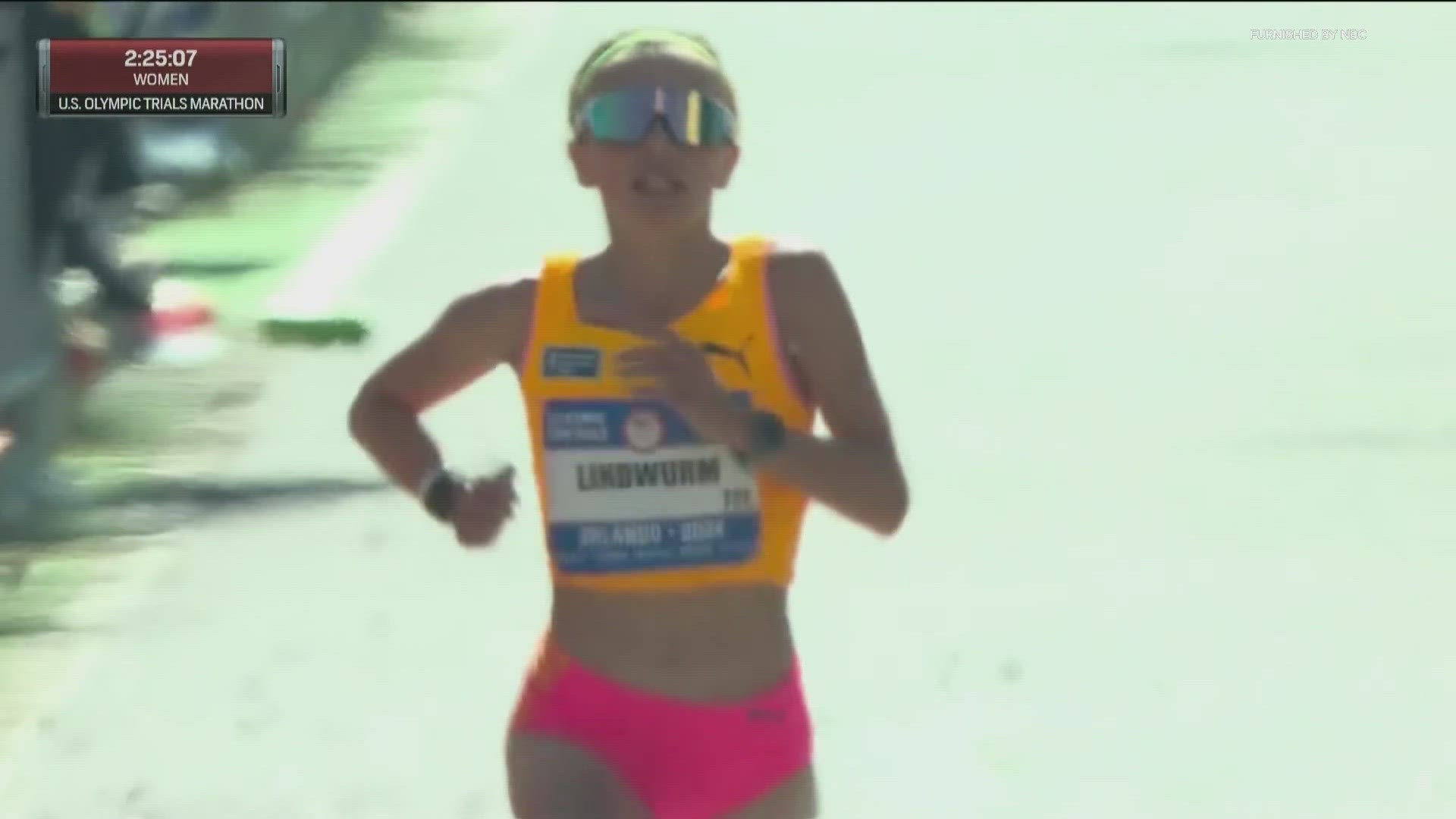Olympic champion bobsledder Steven Holcomb was found dead in his room at the U.S. Olympic Training Center in Lake Placid, N.Y., the U.S. Olympic Committee announced Saturday. He was 37.
USA Bobsled & Skeleton CEO Darrin Steele said there was no evidence of what caused Holcomb's death and he expected an autopsy to be completed on Sunday.
Holcomb won an Olympic gold medal at the 2010 Vancouver Games, piloting the "Night Train" to victory in the four-man bobsled competition. It was the first U.S. gold medal in the event since 1948.
Four years later in Sochi, he went on to win bronze medals in both two-man and four-man bobsled.

"The entire Olympic family is shocked and saddened by the incredibly tragic loss today of Steven Holcomb,” said Scott Blackmun, USOC CEO. “Steve was a tremendous athlete and even better person, and his perseverance and achievements were an inspiration to us all. Our thoughts and prayers are with Steve's family and the entire bobsledding community.”
A native of Park City, Utah, who joined the World Cup circuit as a brakeman in 1998, Holcomb became one of the most decorated bobsled pilots in the world. He won 60 World Cup medals and 10 medals at world championships in addition to his three Olympic medals. He was a five-time world champion.
Holcomb finished the season ranked No. 2 in two-man bobsled on the World Cup circuit and third in four-man. In March he competed at the track that will host next year's Olympics, posting photos on social media from Pyeongchang, South Korea.
"My heart is broken and I'm still in shock," U.S. Olympic bobsledder Elana Meyers Taylor told USA TODAY Sports. "We not only lost a great bobsledder today, we lost a great teammate and an even better friend. He was USA bobsled and will forever be. I will miss him deeply."
Steele remembered Holcomb’s perseverance in the sport. After failing to make the Olympic team as a brakeman in 2002, Holcomb not only came back but sought to become a pilot. He made the Olympic team four years later.
Though Holcomb didn’t win a medal in Turin, Steele said it was important to Holcomb that he was driving the top American sled. He started winning shortly thereafter, marveling that he was driving just as he had before.
That belief in himself, of aspiring to be the best in the world, changed the culture for the American team, Steele said.
“I don’t want people to be too grounded and too realistic. I want them to be dreamers that look into the clouds and aren’t afraid to go for things. That’s what he brought,” he said.

“For a team sport, you might not have that belief in yourself, but if you can believe in your teammates and in particular, your driver, that’s enough. And over time, you get that belief in yourself as well. He gave that. He was, doesn’t matter what year it was, the athletes could look at him and know that the U.S. can get gold medals. That guy right there has proven it, proven it in Vancouver. And by the way, he’s not superhuman. He was an unbelievable drive, he was a good athlete. But in many ways, he’s a regular guy.”
In 2008, Holcomb had experimental eye surgery to correct a disorder called keratoconus, which distorts vision and often leads to blindness. Before the corrective surgery, Holcomb battled depression, and in his 2012 book, But Now I See: My Journey From Blindness to Olympic Gold, he revealed that he attempted suicide in 2007.
"Depression isn't something you catch in the wind one day and get sick the next," Holcomb wrote. "It is a gradual, degenerative process, much like my keratoconus. And just like my blindness, I chose to battle the demon on my own, without telling anyone or seeking help from others."
Brant Feldman, who has been Holcomb’s agent since 2009, said he could not release any details on Holcomb’s death.
Feldman said he recently spent a week with Holcomb in Los Angeles for NBC promos in advance of the Pyeongchang Olympics and a documentary about Holcomb. Feldman was working with a prospective new sponsor who planned to fly Holcomb and his father out to the Indy 500 later this month.
“Everything was cool,” Feldman said. “We were talking about when he wanted to retire, and he told me with the world championships being in Whistler in 2019, that would be his swan song.”
Feldman remembered Holcomb as the consummate teammate.
In 2014, Holcomb asked his helmet sponsor to provide gear for some of the women’s bobsledders, Feldman said.
“Steven was, for the people that really got to know him, they really loved this guy. He was quiet and he was reserved and quiet and nature, but his word was his bond,” he said.
“If you were on Steven’s team, you were on his team. He was the type of guy that was extremely loyal to those around him that were his friends. The really close friends that he had are devastated right now.
“I’m getting messages from all over the place right now, and everyone is surprised. Steve was truly loved by a lot of people.”
Steele said he expects memorials for Holcomb in Park City and Lake Placid. He reached out to the USOC, which offered help with counseling for the athletes.
Like Steele, those athletes are grappling with Holcomb’s death.
“I’m not sure that he understood why he connected with people so well, but I think it was because he did show he was a regular guy with flaws and positives and negatives. But he wasn’t afraid to go forward,” Steele said. “He wasn’t afraid to put it on the line. He did have unbelievable gifts when it came to driving. He was a great athlete. And seeing people that we can relate to doing amazing things like he did, that’s rare. He had that. That’s one more thing that makes it hard to think about that he’s gone.”
Contributing: Jeff Zillgitt


